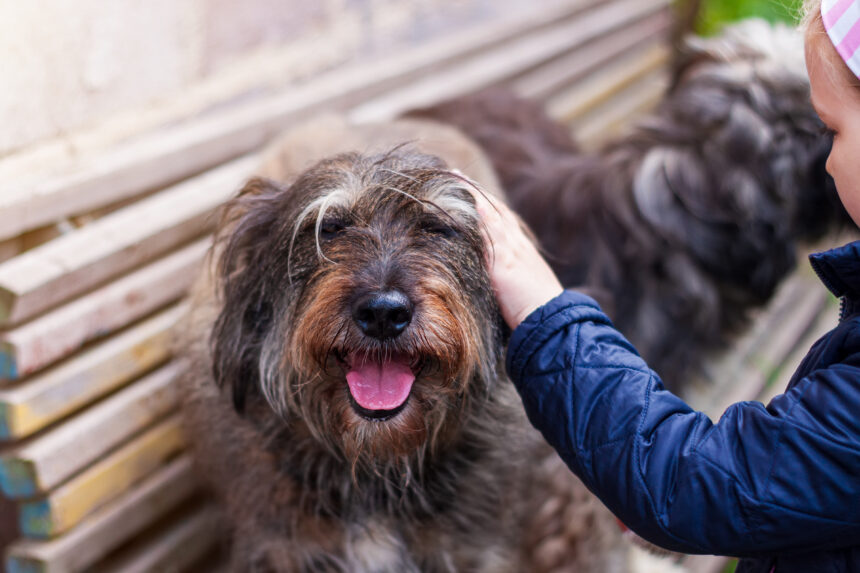As our beloved dogs age, their needs change, requiring us to adjust their care routine to keep them healthy and comfortable. Senior dogs often face various health challenges, from joint pain to cognitive decline, but with the proper care and attention, they can enjoy their golden years happily and healthily. Here are some essential tips for senior dog care, including the role of dog supplements in supporting their well-being.
Understanding the Aging Process in Dogs
Dogs age differently based on their breed, size, and genetics. Generally, smaller breeds tend to live longer than larger breeds, but all dogs will experience some common signs of aging. These can include decreased energy levels, weight changes, dental issues, joint stiffness, and changes in vision or hearing. Recognizing these signs early can help you make necessary adjustments to their care routine.
-
Regular Veterinary Check-Ups
As dogs age, regular veterinary visits become even more crucial. Senior dogs should see the vet at least twice a year for comprehensive check-ups. These visits help detect any potential health issues early on and allow for timely interventions.
- Blood Tests and Screenings: Regular blood work can help monitor organ function and detect conditions such as diabetes or kidney disease.
- Dental Health: Dental care is vital for older dogs. Regular cleanings can prevent dental disease, which can affect overall health.
-
Proper Nutrition
Diet plays a significant role in maintaining the health of senior dogs. Older dogs have different nutritional needs compared to younger ones.
- Balanced Diet: Choose a high-quality dog food formulated for senior dogs. These diets are typically lower in calories but higher in fiber to support digestion and maintain a healthy weight.
- Hydration: Ensure your dog has constant access to fresh water. Older dogs can be prone to dehydration, especially if they have underlying health issues.
-
Exercise and Mobility
Maintaining an appropriate level of physical activity is essential for senior dogs. Exercise helps keep their joints flexible, maintains muscle mass, and prevents obesity.
- Gentle Exercise: Adjust the intensity and duration of exercise based on your dog’s abilities. Gentle walks, swimming, and low-impact activities are ideal.
- Joint Care: Consider adding joint supplements to your dog’s diet. Supplements containing glucosamine and chondroitin can help maintain joint health and reduce pain from arthritis.
-
Dog Supplements
Dog supplements can play a crucial role in supporting the health of senior dogs. Here are some essential supplements that can benefit older dogs:
- Joint Supplements: Glucosamine and chondroitin are popular supplements that support joint health and mobility. They help maintain cartilage and reduce inflammation.
- Omega-3 Fatty Acids: These supplements support heart health, reduce inflammation, and improve skin and coat condition. Omega-3s can be particularly beneficial for dogs with arthritis or skin issues.
- Probiotics: Probiotics promote a healthy digestive system, vital for nutrient absorption. A healthy gut can improve overall health and immune function.
- Antioxidants: Supplements rich in antioxidants, such as vitamins C and E, support immune health and can slow the progression of cognitive decline.
-
Mental Stimulation
Keeping your senior dog mentally stimulated is just as important as physical exercise. Cognitive decline is common in older dogs, but mental activities can help keep their minds sharp.
- Interactive Toys: Use puzzle toys and treat dispensers to engage your dog’s brain.
- Training: Continue basic training exercises and introduce new tricks to keep your dog mentally active.
- Social Interaction: Regular interaction with other dogs and people can provide mental stimulation and prevent loneliness.
-
Comfort and Accessibility
As your dog ages, making your home more accessible can help them stay comfortable and safe.
- Orthopedic Beds: Provide a comfortable, supportive bed to relieve pressure on joints.
- Ramps and Steps: Install ramps or steps to help your dog navigate stairs or get onto furniture more easily.
- Safe Environment: Keep your home free of hazards that could cause your dog to trip or fall. Ensure food, water, and sleeping areas are easily accessible.
Conclusion
Caring for a senior dog requires a few adjustments, but with the right approach, you can help your furry friend enjoy their later years in good health. Regular vet visits, proper nutrition, gentle exercise, and the right dog supplements can make a significant difference in their quality of life. Remember, your senior dog relies on you for their well-being, so take the time to understand their changing needs and provide the love and care they deserve. By doing so, you’ll ensure that your loyal companion continues to enjoy a happy, healthy life by your side.




